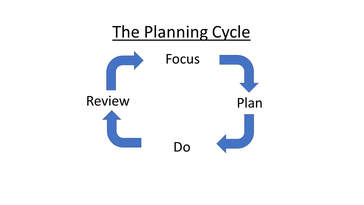 There is one P in the 6Ps of marketing that we have yet to touch on, and that is “process”. In some way all of the previous blogs touched on this as a process has to have content and they were about content. But the really important part of process is another P – planning. A marketing plan is essential to success because, if you don’t have a plan, you won’t know what you are supposed to be doing or when it should be done. So, what does the plan look like?  Rudyard Kipling Rudyard Kipling The content of your plan lies in the old Rudyard Kipling quote “I keep six honest serving men (they taught me all I knew); Their names are What and Why and When and How and Where and Who.” Putting those words into questions helps you to decide the content of your plan:
There are many similar questions that can be asked and our previous blogs tell you what to ask and how to answer some of them.  You may have noticed that we have omitted “why”. That’s because the why question is “why should I write a plan? There is an old saying about planning: If you fail to plan then you plan to fail. That’s the why. That is all good, but some people have never constructed any sort of plan at all, so this blog is aimed at them. How do you get from that quote above to selling more books?  The first thing you need when creating a plan is an objective, goal or desired outcome. Call it what you like, but it is a description of where you want to be by the time your plan has been delivered. For Indie authors this is usually quite simple to define – your goal is probably to sell more books. You even have a readymade measurement to tell you if the plan is working – the number of books that you are selling after you have delivered the plan compared to the number you are selling now. But that is a big goal to achieve and you will need to do a lot of work to achieve it. What you also need to know is if your plan is taking you in the right direction. It might take you 3 months or more to achieve your goal and that is a long time to wait to find out that your plan isn’t working and needs to be re-thought. "if each step is successful, then the final outcome should never be in doubt." So, you have to create sub-objectives, which you can tick off along the way to make sure you are staying on track for success. Believe me, if each step is successful, then the final outcome will never be in doubt. And if some of the sub-objectives still seem quite daunting, you can break them down even further. Remember the old maxim: “How do you eat an elephant? One bit at a time.” (apologies to vegans).  Not this sort of trial. Not this sort of trial. For each major objective you need to ask those who, what, where etc questions to identify the sub objectives and if you want to break the sub-objective down into smaller bits, you may need to ask them again. But whatever you plan to do, keep it simple. Simple plans have fewer things that can go wrong and the less that can go wrong, the more chance there is of success. You can always go back to the plan later, after you have learnt from trying things out, and get a bit more ambitious in your use of marketing techniques (I talk about reviewing plans later). You may even want to run a few “pilot schemes” or “trials” to see if what you plan to do is actually going to work on a larger scale when you set the whole plan in motion.  One of the things of which you have to be careful, is that you lay out your sub-objectives in the right order. For example, if you were building a house, “Put the roof on” wouldn’t appear in the plan until after “dig foundations” and “build walls”. You may need to spend a bit of time making sure your marketing plan is constructed (groan at bad pun) in the right order, just like you would build a house. Test the logic and feasibility of doing things in the order you have described, to see if you have got it right. In previous blogs we talked about getting some training in social media marketing, so that might be an early sub-objective in your plan. We also talked about writing your marketing messages, so trying those out on people might be another sub-objective. But basically, all you are doing is breaking down one very big and daunting objective into several smaller, less daunting tasks, then laying them out in a logical order. "there is no point in knowing “you are here” if you have no idea what “here” looks like." In project management we call the completion of sub-objectives or tasks “achieving a milestone” and it feels very rewarding to reach each milestone and tick it off your plan. But, just like real milestones, you have to know where they are, which means having some sort of measurement of achievement for each task. After all, there is no point in knowing “you are here” if you have no idea what “here” looks like. In the same way, you can’t know you have reached a milestone if you don’t know what the milestone looks like.  A written description of what it will look like is the best way of recognising a milestone. For example, a description of the messages you want to send out about your book might read: “Write 7 sentences/paragraphs of up to 140 characters* each that provide a clear indication of the book’s content., grammatically correct, correctly spelt and tested on sample readers.” You can see from the description that “quality” checks are built in. That is the sort of task description you could write for each sub-objective, so you will recognise your milestone when you get to it. But all plans are meaningless if they don’t have resources assigned to them. A plan without the resources to deliver it is just a wish, a hope or even a dream.  Is it a plan - or just a wish? Is it a plan - or just a wish? These resources can include money, to pay for things such as advertising. But a far more important resource is information. You have to know the answers to those who, what, why etc questions you asked, so that you can apply your other resources in the right place at the right time. So one of your sub-objectives is almost certain to be information gathering, or research as it is more commonly known. This will result in you not wasting your other resources (such as money) on the wrong activities. Time is another major resource. None of this stuff will do itself. Yes, I know, you’re a writer. You don’t want to have to spend all your time doing marketing.  Which makes it all the more important that you don’t waste what time you are willing to expend on marketing by doing the wrong things. There is an old saying in quality management “Isn’t it amazing how people who don’t have time to get things right the first time they do them, always have time to do things a second time when the first time goes wrong.” And if you are spending money, you can’t afford to spend even more money correcting mistakes by getting things wrong first time. So, all that research is critical if you want to get things "right first time". You will make mistakes (because you are human), but you can minimise the number of mistakes you make.  The final resource I’m going to talk about is knowledge, which I have already touched on in previous blogs. If you don’t really know what you are doing, you are going to waste your other resources on getting things wrong. "Trial and error” may teach you a lot, but it is an expensive way to learn. Invest in yourself, even if the investment is just time spent doing a free on-line course. We’re not talking about studying for a 3 year marketing management degree here, just a few hours learning the basics of social media marketing and trying out a few ideas to get a feel for what is right for you and your books. Once you have your marketing plan – you can use it again and again, refining it each time as you learn what works best and what isn’t working so well. because you will have to keep  repeating your marketing activity, because marketing messages soon fade from people’s consciences and you will always be looking for new readers who will buy your books, because nobody buys the same book a second time. Consequently, you have to keep reviewing your plan to make sure it is delivering for you. There is a thing called the planning cycle which is made up of four stages:
Just because your marketing plan delivered some sales, it doesn't mean it couldn't have delivered more sales, so you need to look at your results to see where improvements can be made and then make those improvements. "But I'll finish with one word of caution"  That brings us to the end of this series of blogs on marketing. We hope you have found them helpful and, more importantly, we hope you are selling more books as a result of reading them. But if you still have questions, please feel free to ask them. You can find our email address on our “contacts” page. I’ll finish with one word of caution. You can’t make a silk purse out if a sow’s ear. A brilliant marketing plan won’t sell a book that readers don’t want to read. So, if you are doing all the things we have talked about in this series of blogs and your books still aren’t selling, then you have to ask yourself why. The answer is no longer going to be “because of a lack of marketing”. If you would like to express your thanks for the guidance we have offered over the past 13 weeks, it would be welcomed. We are publishers, so the best way of thanking us is to buy one of the books we publish. Take a look at our catalogue on our "Books" page. * We know that Twitter now accepts posts of up to 280 characters, but you need to make an allowance for the inclusion of a link to the book’s sales page and for hashtags. And, of course, character count isn’t an issue for Facebook posts, though people rarely read beyond the first few lines. For Facebook, think “elevator pitch” or “blurb”. If you have enjoyed this blog and want to make sure you don’t miss future editions, you can sign up for our newsletter. We’ll even send you a free ebook for doing so. Just click the button below.
0 Comments
Leave a Reply. |
AuthorThis blog is compiled and curated by the Selfishgenie publishing team. Archives
June 2025
|
 RSS Feed
RSS Feed